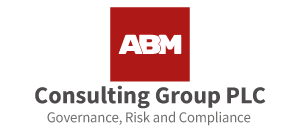Banking Licensing & Advisory
We help your business achieve its goals and reduce regulatory burdens and costs.
As a trusted advisor we ensure your business gets the outcomes it desires whilst minimizing your regulatory burden and costs.
Being part of ABM Consulting Group PLC ‘s experienced Financial Service Licensing, ABM is currently considered as the Banking licensing advisor with help of our consultant’s network. We successfully got approved the application of more than 150 Financial Services licenses firm like Payment institutions including Emoney.ABM can help all required services for the bank licensing process, preparation of licensing documentation, business plan, and Financial Forecasting, AML compliance program, Risk Management Framework, and other issues.

We offer compliance consultancy and risk management outsourcing. Our compliance consultancy services encompass a broad spectrum, ensuring that your business not only meets regulatory requirements but also develops a proactive culture of adherence. We tailor our strategies to align with the unique needs of your industry, providing guidance on regulatory frameworks, policy development, and implementation.
We develop and revise Governance, Risk Management, and Compliance Frameworks. At providing businesses with a solid foundation for achieving objectives, addressing uncertainties, and maintaining integrity. Our approach is characterised by a meticulous understanding of your organisational context, industry dynamics, and regulatory landscapes.
Our dedicated Financial Crime and AML practice help you develop your Financial Risk Framework, offer training and can complete your mandatory annual 5MLD independent audit. Mandatory under the Fifth Money Laundering Directive, our adept professionals conduct independent audits to ensure your organisation's compliance with AML regulations. Our audit process goes beyond routine checks, providing valuable insights to enhance your AML framework.
Licensing Application:
Obtaining a bank licence in the UK can be a lengthy and exacting process with applicants required to meet the standards of two regulators. The Prudential Regulatory Authority (PRA) is responsible for the financial stability of the banking system looking at such areas as minimum capital requirements and risk control frameworks. The Financial Conduct Authority (FCA) is responsible for the integrity of the market players and supervises a much wider range of firms. The PRA is the body which actually grants the licence, but it will also require the approval of the FCA. There are potentially three stages to the application process:
Pre-application:
Although applicants can go straight to applying for authorisation many firms have found the pre-application process useful as it allows them to work closely with both regulators and understand their requirements in more detail. There is no set time for completing this phase and it consists of three meetings:
Initial meeting:
This enables the applicants to meet members of the PRA New Bank Business Unit and ask questions about the process. It also gives the applicants their first opportunity to present their high level regulatory business plan and over the next ten days the PRA will inform the applicants of issues that need to be addressed before the next meeting.
Feedback meeting:
Applicants will present their full business plan at this stage and they will be introduced to the case officers from both regulators. The case officers will discuss the regulatory implications of the business plan and any issues they have. Again over the next 10 days the PRA will inform the applicants of any issues that need to be addressed in preparation for the challenge meeting.
Challenge meeting:
By this session the business plan should be in its most complete form and have been read by the board. The board will also be expected to be present at the meeting. During this session there will be vigorous challenges to the Internal Capital Adequacy and Internal Liquidity Adequacy plans as well as any other aspects of the plan that need to be addressed. All issues raised by the regulators at the meeting need to be resolved before moving on to the authorisation process.
Pre-application:
Applicants can either apply for full authorisation or for authorisation with restriction and mobilisation (see below for the latter). The applicants will complete and submit an application form via the Bank of England website detailing the full business plan which must cover the following:
- Full product and service description
- Delivery channels
- Market position
- Five year financial forecast
- Corporate governance
- Sources of funding
- Risk management framework
- IT infrastructure
- Business continuity plan
- Project plan for setting up the bank
The PRA will respond within 8 weeks after the initial submission to advise any requirements. It has a statutory deadline of six months to make a decision on a completed application and 12 months on an incomplete application.
The PRA charged £25,000 for a bank license.
Restriction and mobilisation:
This phase is suitable for small firms who do not have their full IT, operational and HR resources in place. It allows applicants to actually be authorised as a bank, but with restrictions in place. Applicants must have a fully prepared business plan by this stage including a clear statement of financial resources and a five year financial projection plan. Minimum capital requirements must be in place and there must be a full Internal Capital Adequacy/Liquidity Adequacy plan as well. The applicants will have 12 months to build out all its resources and the other parts of the business plan. It must present the PRA with a full mobilisation plan up-front and provide regular progress updates as well.

